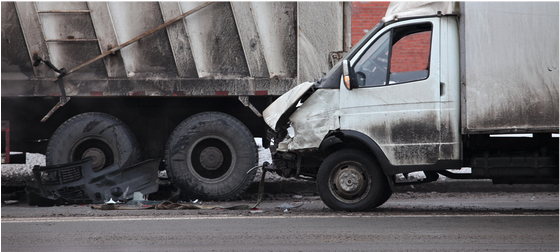Every business dealing with trucks knows the risks involved. Accidents can happen anytime, causing serious damage, injuries, or even fatalities. Truck accident lawyers play a crucial role in protecting businesses from potential liabilities arising from these accidents.
With their expertise, these lawyers ensure companies are well-prepared to handle any legal issues that may arise. They navigate the complexities of truck accident laws and regulations, allowing businesses to focus on their operations.
Moreover, having a dedicated lawyer can provide peace of mind. Businesses can trust that any accident-related issues will be handled professionally and efficiently. This saves time and helps maintain a company’s reputation and financial stability.
Understanding Liability in Truck Accidents
Liability in truck accidents involves determining who is at fault and how legal responsibilities are assigned. It is crucial for businesses to know the laws and have strong legal support.
The Role of Hamilton Truck Accident Lawyers
Truck accident lawyers help businesses navigate the complexities of liability. They collect evidence, analyze accident scenes, and build strong cases. These lawyers understand the nuances of commercial vehicle regulations.
- Investigate Accidents: They gather crucial data like driver logs, maintenance records, and witness statements.
- Negotiate Settlements: Skilled in negotiating with insurance companies or in court to secure fair settlements.
- Provide Legal Advice: They advise on compliance with road safety laws and preventive measures.
strong legal representation can significantly reduce the financial burden and reputational damage from truck accidents.
Relevant Canadian Road Safety Legislation
Understanding the laws that govern truck operation in Canada is essential. Key legislation includes:
- Canada Labour Code: Covers safety standards for truck drivers.
- Motor Vehicle Safety Act: Regulates vehicle safety and maintenance.
- Ontario Highway Traffic Act: Specifies rules and penalties for road use.
These regulations ensure that businesses adhere to safety standards. Compliance helps in reducing accidents and liabilities. Regularly updating knowledge of these laws is vital for managing risks effectively.
Keeping these points in mind ensures businesses are well-prepared to handle any legal challenges arising from truck accidents.
Best Practices for Businesses to Mitigate Liability
Companies must take essential steps to minimize risks. Key measures include enhancing safety protocols, providing driver training, and ensuring comprehensive insurance coverage.
Implementing Stringent Safety Protocols
Companies should establish rigorous safety procedures for all trucking operations. These protocols include:
- Regular vehicle maintenance checks
- Using modern safety technology like GPS tracking
- Monitoring drivers’ hours
- Applying strict load securement guidelines
Creating a culture of safety and compliance helps avoid accidents and liabilities. Tools like safety audits and compliance reports can track progress and identify improvement areas.
Conducting Regular Driver Training Programs
Driver training is crucial in reducing accident rates. Training should cover:
- Defensive driving techniques
- Managing difficult weather conditions
- Safe loading and unloading practices
- Health and wellness programs to reduce fatigue
Employers should offer initial and ongoing training to ensure drivers remain updated with the latest safety practices and regulations. Regular assessments and certifications can help maintain high standards.
Ensuring Adequate Insurance Coverage
Adequate insurance is necessary to mitigate risks. It’s important to:
- Evaluate the specific coverage needs of the business
- Assess operational risks to choose the right policy
- Include comprehensive general liability, cargo insurance, and accident-related coverage
- Regularly review and update insurance policies
This protects businesses financially if accidents occur, helping cover legal fees, damages, and medical expenses.

























































































































